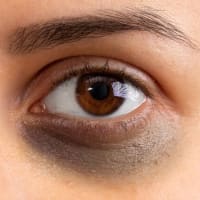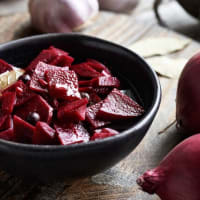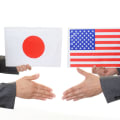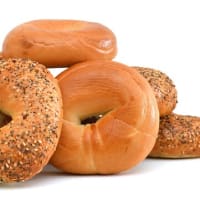Dali Let me ask you, how do you say oishii in English?
ダリちゃん ちょっと聞いていい? 「おいしい」って英語で何て言う?
Me Delicious!
私 デリシャス!
Dali No! Oishii is not delicious. Oishii means good. If you eat something and you think it is oishii, you should say, “Oh, this is good.” Why can you not say “delicious”? Because it is not the meaning of oishii. “Delicious” means taihen oishii. “Delicious” is a strong word. Because it is such a strong word, we don’t use it so often. It’s reserved for the best taste, highest quality. One more point. Because “delicious” means taihen oishii, we don’t need additional emphasis. We might eat something, and say, “This is very good,” which is natural. So, there is “good,” there is “very good,” and there is “delicious,” with which it is not common to add the word, “very.” A Japanese might want to say, “very delicious,” which is probably not natural. But sometimes we might say something like, “simply delicious.”
ダリちゃん ちゃう。「おいしい」はdeliciousとちゃう。「おいしい」はgoodだ。もし何かを食べて「おいしい」と思えばOh, this is goodと言うべき。なぜ、deliciousといっちゃだめかって? だってdeliciousは「おいしい」と言う意味じゃないもん。deliciousは「大変おいしい」という意味なんだ。deliciousは強い言葉だ。とってもきついのであんまり使わない。一番おいしい時、最高のクオリティーのために取っておくべき言葉だ。もう一つ。deliciousは「大変おいしい」と言う意味なので、追加の強調はいらない。わしらは何かを食べてThis is very goodと言うかもしれないが、これは自然。だから、goodがあってvery goodがあってdeliciousがある。deliciousにveryをつけることは普通しない。日本人はvery deliciousと言いたいかもしれないが、これは恐らく不自然だ。でもわしらは時々例えばsimply deliciousと言う事はある。
Me I see.
私 わかった。
Dali There are many English words, which don’t need “very.” For example, “excellent.” “Very excellent” is strange because excellent is already so strong. You don’t need more emphasis by adding the word, “very.” You can say “this book is excellent” or “this book is very good,” but “this book is very excellent” is absolutely wrong. Other examples. This time, words with bad connotations. “Terrible,” “horrible,” and “awful.” We don’t use the word “very” with these words. “Very horrible” is unnatural. My point here is that there are many English words which, in a sense, have the word, “very” built in, so we don’t need to add it.
ダリちゃん veryがつかない英単語はたくさんある。例えば、excellent。very excellentは変。だってexcellentはもともととっても強い言葉だからだ。veryという言葉をつけてさらに強調する必要はない。「この本はexcellent」や「この本はvery good」とは言えるが、「この本はvery excellent」というのは100%間違っている。他の例。今度は悪いというニュアンスの単語。terrible、horrible、awfulだ。これらの単語にはveryはつけない。very horribleは不自然。わしがここで言いたいのは、ある意味veryと言う言葉が組み込まれていて、さらにveryを付け足す必要がない英単語がたくさんあるということだ。
Key words(キーワード)
reserve: (を)取っておく、使わずにおく
emphasis: 強調、重要視
connotation: 言外の意味、含蓄、含意、内包
terrible: 恐ろしい、怖い、ひどい
horrible: 恐ろしい、ものすごい、身の毛のよだつ
awful: ひどい、すごい、恐ろしい
in a sense: ある意味では、ある程度まで
erroneously: 誤って、間違って
huge: 巨大な、莫大な
Comments(コメント)
I often erroneously used expressions like, “very delicious,” “very huge,” “very terrible,” “very wonderful,” and so on. Thanks to Dali, I don’t think I will make such mistakes again.
僕はよく間違ってvery deliciousやvery hugeやvery terribleやvery wonderfulなどの表現を使っていた。ダリちゃんのおかげで、もうこんな間違いはしないと思う。























